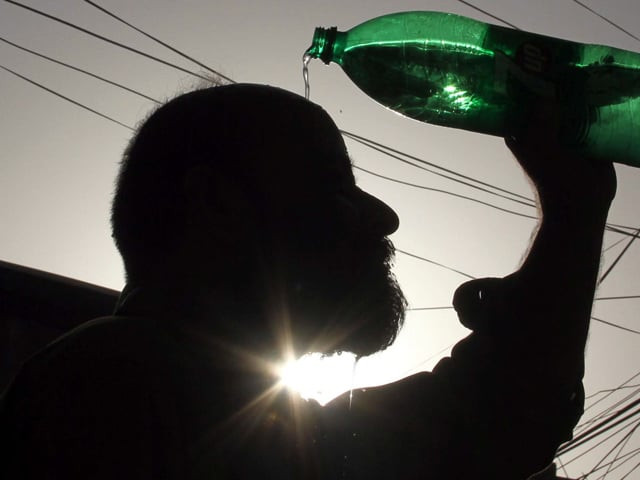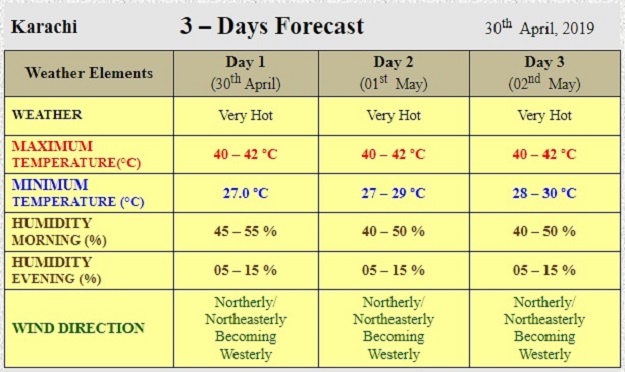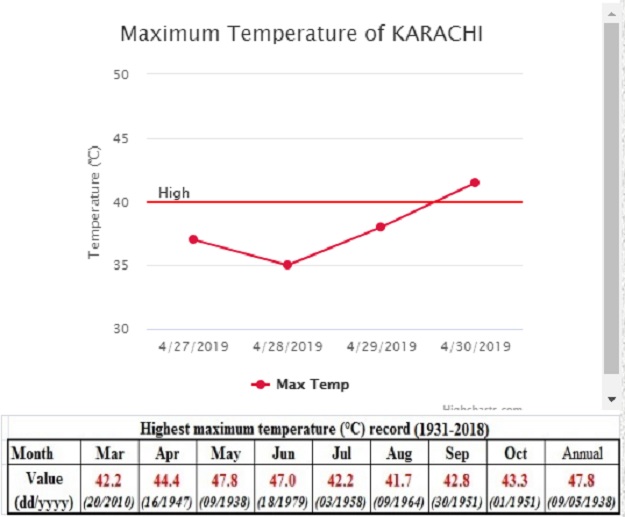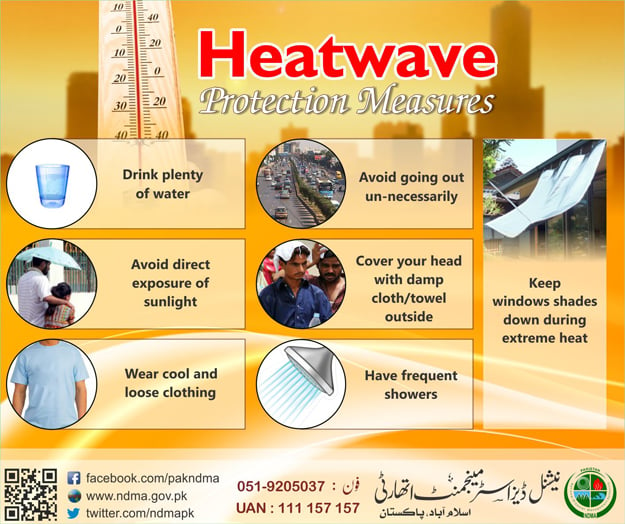Karachi begins to swelter as Sindh braces for heatwave
National Disaster Management Authority recommends necessary measures to general public and all relevant departments

Karachiites could experience temperatures between 40 to 42 degrees Celsius during the expected three-day heatwave this week. PHOTO: FILE
The Pakistan Meteorological Department had warned that the port city could experience temperatures between 40 to 42 degrees Celsius during the expected three-day heatwave, from May 1 to May 4, in which the southwestern winds coming from the sea will remain suspended.
However, the Sindh capital was hit by hot winds blowing from northwest direction of 10-15kts on Tuesday morning, a day earlier than the forecast.
“Today’s maximum temperature may touch 42°C and similar conditions may prevail during coming 4 days, 1 – 4 May 2019,” the Met Office said in a revised warning.
 PHOTO: PMD
PHOTO: PMD PHOTO: PMD
PHOTO: PMDSeparately, the NDMA directed all relevant departments including the Sindh disaster management body to take necessary measures to minimise the impact of the severe hot weather.
The NDMA recommended establishing Heatstroke Stabilisation and Relief Centres at all available government and private hospitals, basic health facilities, rural health centres and all available government buildings and community centres across the province.
Heatwave in Karachi from May 1: MET office
The authority also stressed need to ensure uninterrupted water and electricity supply to the relief centres. It also recommended that a helpline should also be established for the affected people on priority basis while ensuring necessary assistance in providing clean drinking water and medicines to the victims.
The concerned departments were also advised to ensure provision of emergency relief medicines in the drought-hit areas. The NDMA said that it must be apprised of any emergency situation to ensure timely formation of heatstroke centres, launching an awareness campaign and issuing SMS alerts.
The authority also recommended that the concerned departments should also ensure uninterrupted power and water supply in all urban and rural areas of the province. Facilities of electricity generators, emergency services, ambulances and trained staff must also be ensured at all areas facing the threat.
 PHOTO: NDMA
PHOTO: NDMAThe NDMA also advised general public to adopt preventive measures including drinking plenty of water, avoiding direct exposure to sunlight, wearing cool and loose clothing, avoiding going out unnecessarily, covering head with damp cloth outside, having frequent showers and keeping window shades down during extreme heat.

1724319076-0/Untitled-design-(5)1724319076-0-208x130.webp)

















COMMENTS
Comments are moderated and generally will be posted if they are on-topic and not abusive.
For more information, please see our Comments FAQ